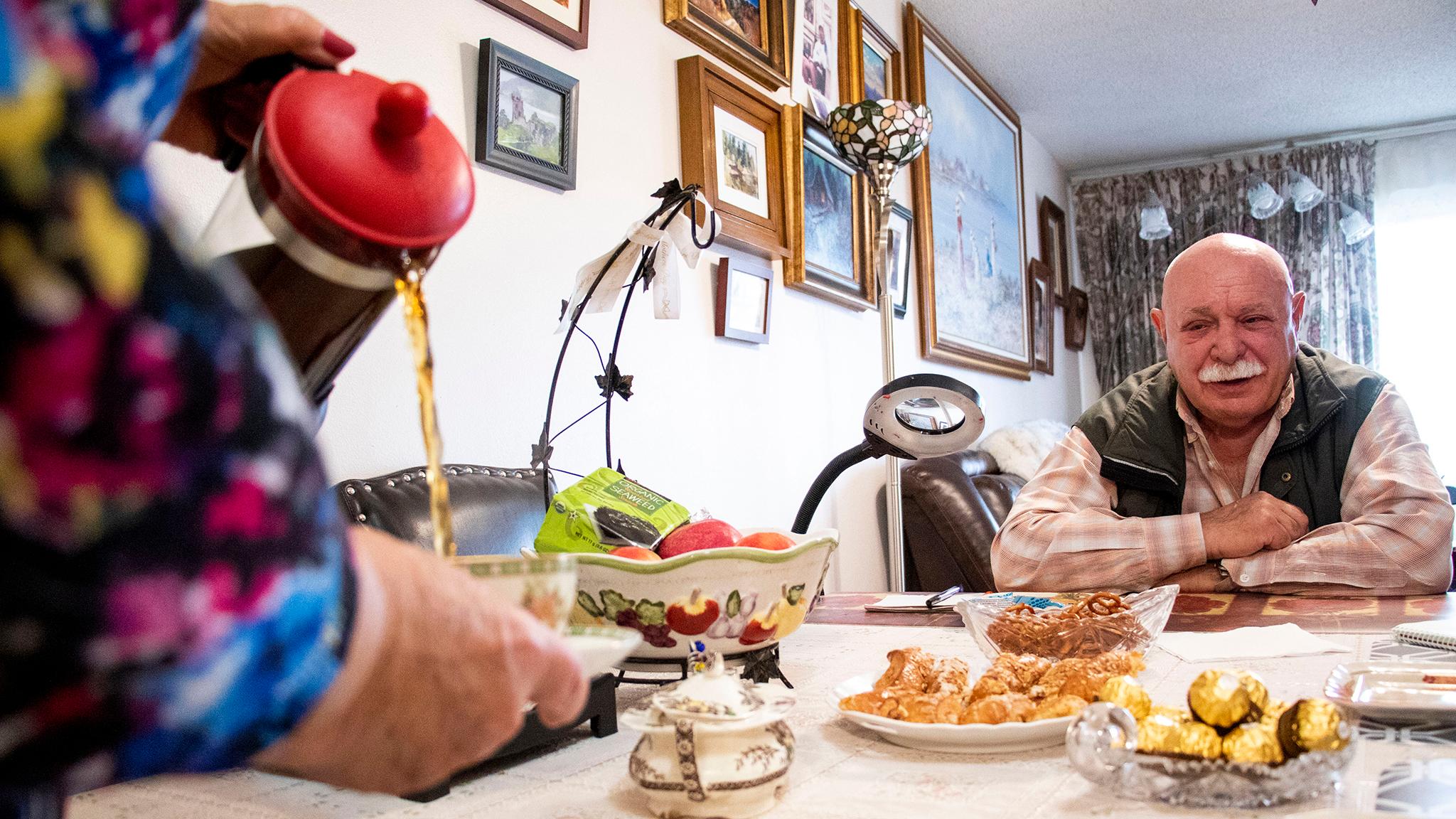The refugee couple from Ukraine reminisced as one about some of their first encounters with the centerpiece of Thanksgiving.
Simon Kaganov, sitting at his kitchen table in his Windsor Gardens apartment in south Denver, began: "Usually we took a turkey and went to a- "
" -special Polish store and they smoked the turkey," his wife Alla Sheherbi finished for him.
"Very tasty. But now- " Kaganov continued,
" -they're closed," Sheherbi concluded.
Their turkeys -- along with all the fixings -- are among those donated to families every year by Jewish Family Service, a nonprofit that Sheherbi and Kaganov said offers lessons about not just their new homeland's holidays, but its spirit.
More than 500 families received Thanksgiving food from Jewish Family Service last year in just part of the work of the organization's Weinberg Food Pantry. In all, the pantry distributed 622,096 pounds of food last year, helping more than 5,000 hungry or food-insecure people.
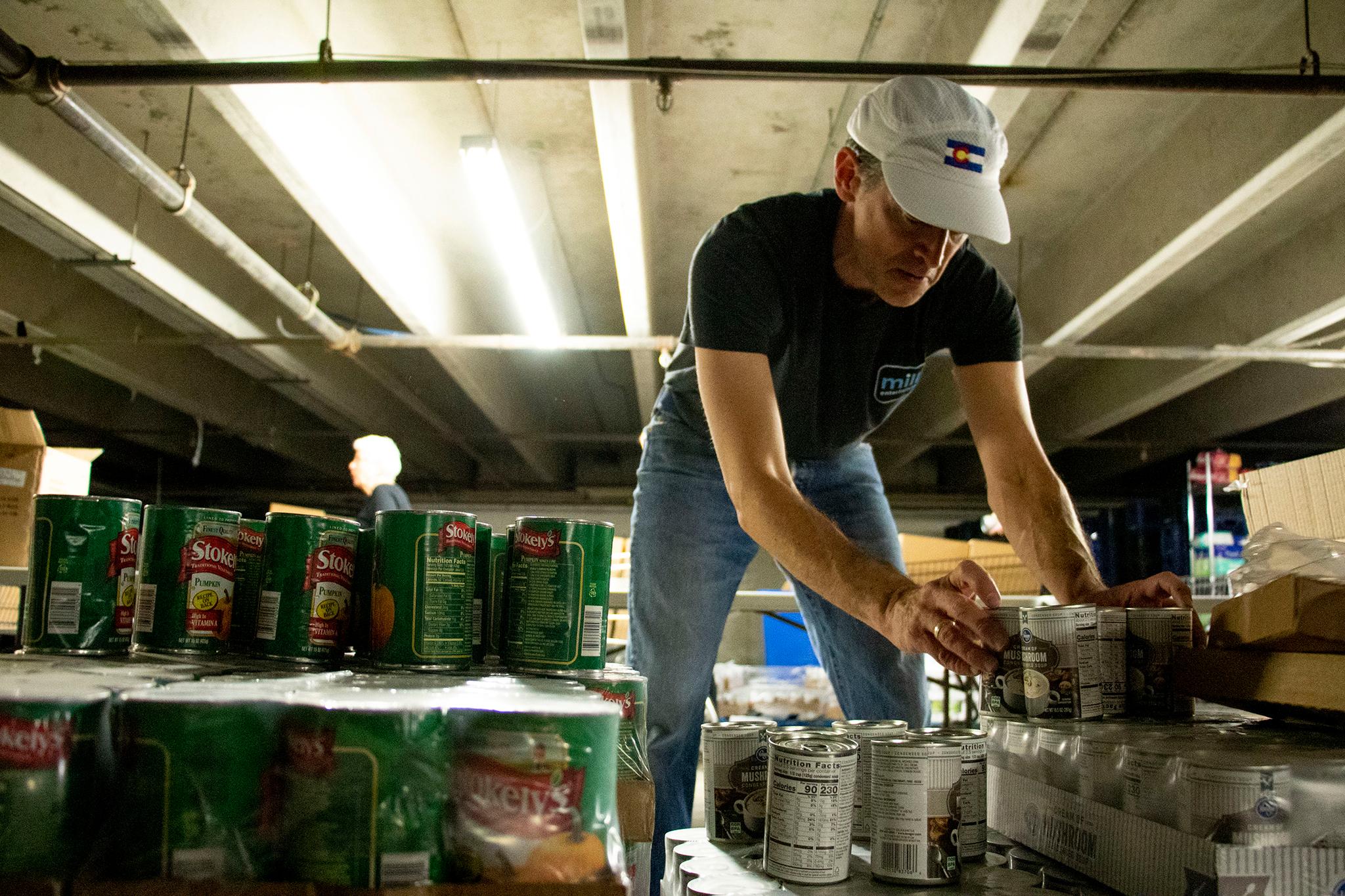
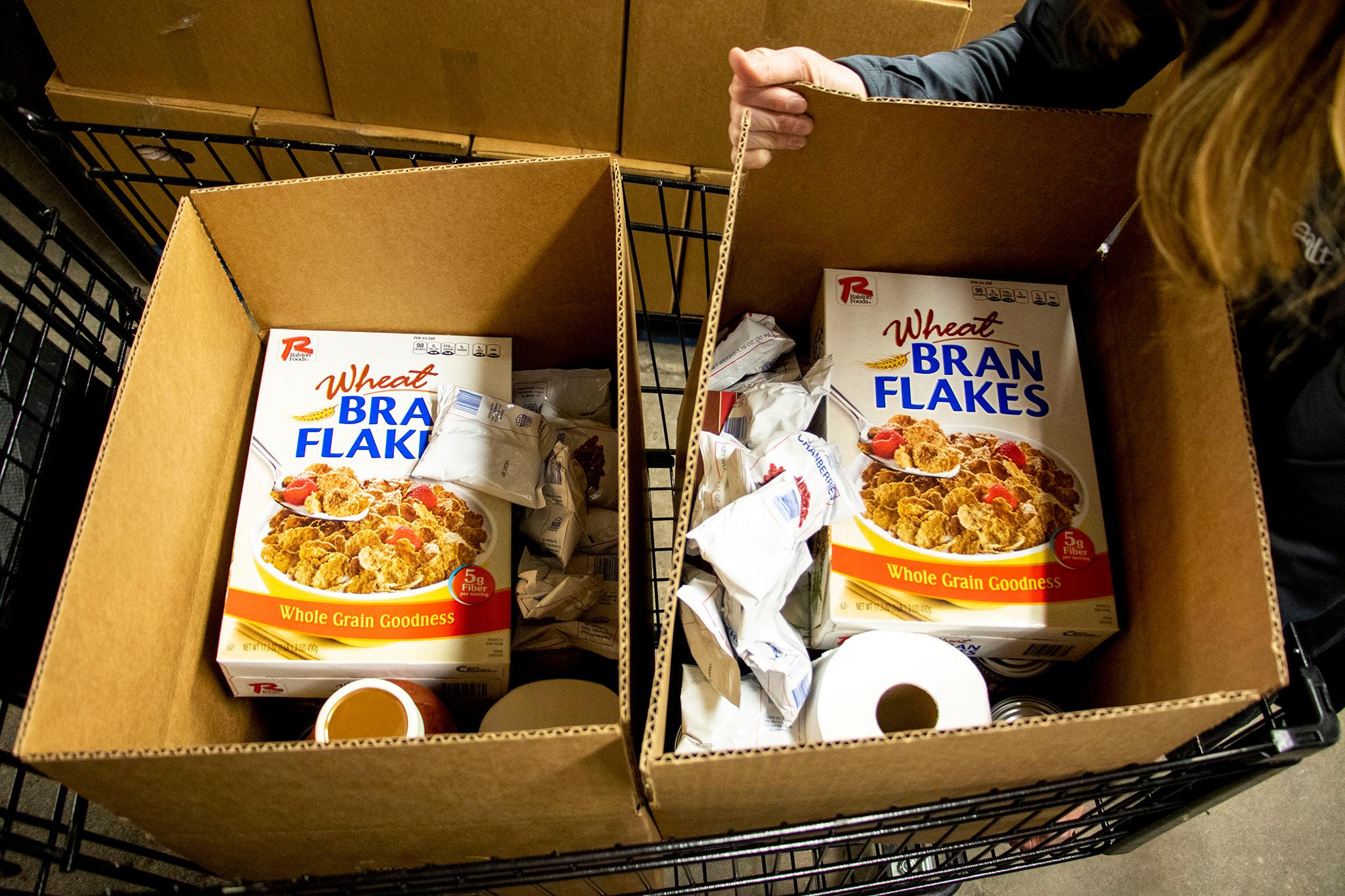
The Jewish Family Service Thanksgiving tradition was bolstered eight years ago when Justin Levy and his family made it their special project, donating time and money to getting the holiday boxes filled with food and distributed.
"I wanted to do something to celebrate my mom, and Thanksgiving was always such a special holiday for my family," said Levy, an entertainment marketing manager who was born and raised in Denver. "Certainly I have memories of all the effort and work that my mother would put into making it special."
"She would put people, their needs, ahead of hers."
Levy said when new relatives and friends join his family on distribution day, they're often surprised to see people from many countries lining up for a box.
"You see a real wonderful slice of people from all over," Levy said. "That's America, and that's how it should be."
Kaganov, who became a U.S. citizen in 1999, makes a point of impressing on other immigrants that Jewish Family Service is multicultural.
"You know, it's America. Jewish Family Service helps everyone," Kaganov said. "Jewish, Muslim, Russian, American people. Everybody who needs help."
Kaganov, his wife, daughter and granddaughter arrived in the United States in 1994 from the city they call Kharkov, also known as Kharkiv. They first settled in Philadelphia, where Kaganov's brother was already living. They studied English at a Philadelphia community college with classmates from China, Cuba, Tibet and Vietnam, Sheherbi recalled, saying it opened their eyes "on the world."
Their daughter, a computer scientist got a job in Denver and they followed her here in 2001, the year she had a son.
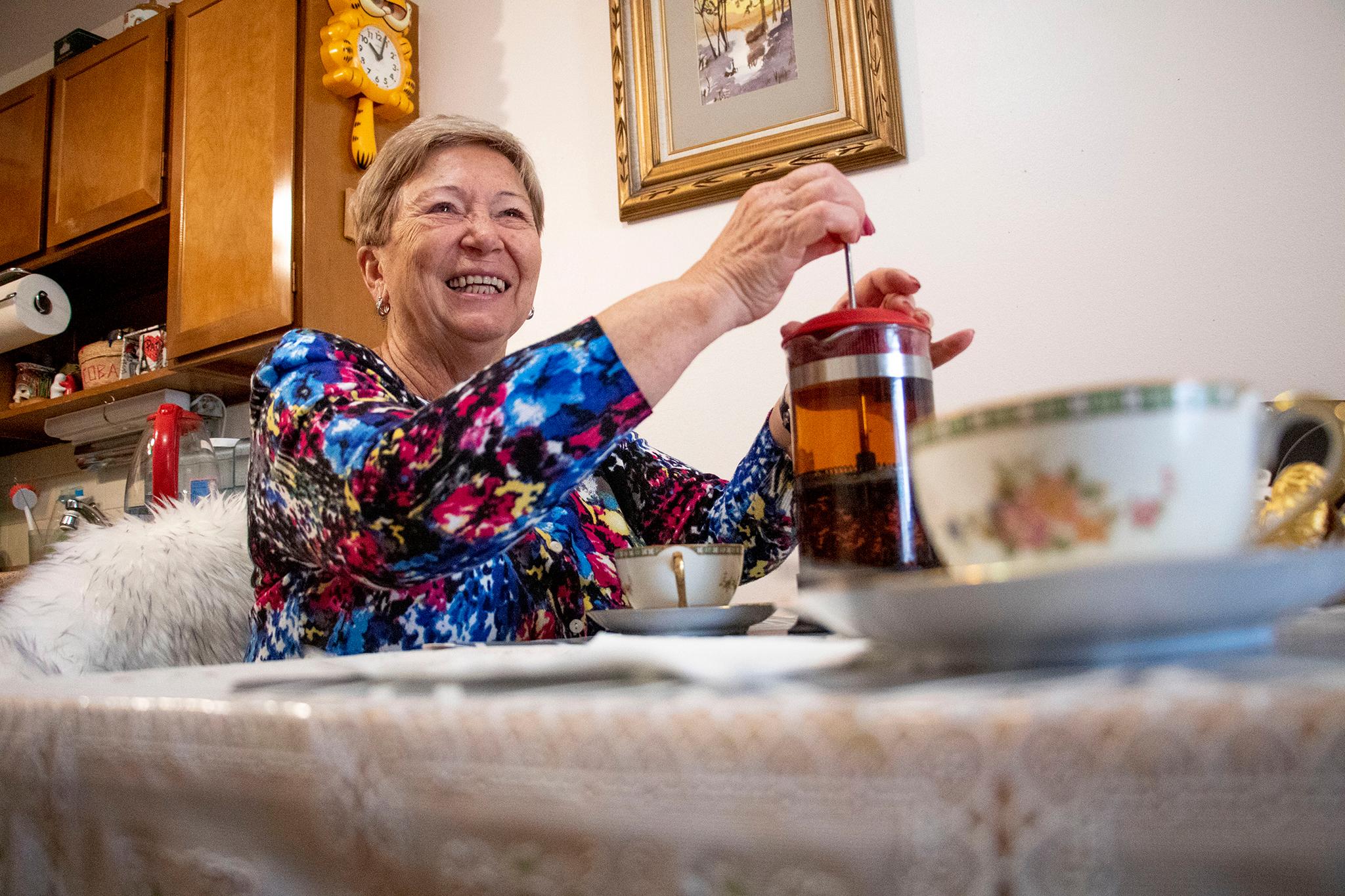
In Ukraine, "we lived, a big family, in a very small apartment," Sheherbi said. "It was usual for us to help each other, to help with kids. So of course we came here to help our daughter."
Unable to work after suffering a stroke, Kaganov had kept busy volunteering in Philadelphia. In Denver, he offered to help out at Jewish Family Service. Kaganov volunteers weekly at the organization's Denver offices at 3201 South Tamarac Drive in Hampden. He says he's there twice a week -- his wife corrects that to at least once. He said he acts as an interpreter, though he apologizes for his English.
"When people come to another country, they get lost," Sheherbi said. "They need to understand the situation, the rules. It's what my husband explains to them."
"I understand the mentality of immigrants. I explain to them the situation. We use body language, too," Kaganov said. "I give them advice, what you have to do -- go to this college, or go to work."
"Sometimes Korean people came and they say, 'Simon, come help translate,'" Sheherbi said.
"I experienced Weinberg Food Pantry first as a client in 2013," Christy Morris said. "I needed help for about six months."
Chicago-born Morris is a longtime Denver resident who like Kaganov volunteers regularly at Jewish Family Service. She helps out at the food pantry.
Morris, who has had a career in Denver's restaurant industry, said the food and a Jewish Family Service life skills class helped her get back on her feet.
"I always felt that you have to give back," she said. "I get rewarded by giving back."
What Jewish Family Services gives, Morris said, includes a recognition of the humanity of those it serves. That is symbolized in the flowers that are regularly distributed along with food, including atThanksgiving, she said. The Thanksgiving boxes hold enough supplies to allow a family to invite others to a meal, she added.
"It is a feast," she said. "We give so that you can give, share. That gives our clients dignity."
"We welcome a lot of our immigrants who are new to the country and just need a fresh start," Morris said.
Raad Altaee, a former Iraqi Army nurse, fled his homeland after being threatened because he had worked for a decade as an interpreter for the American military. The decorations in his Montbello living room include a framed certificate lauding his service to the United States.
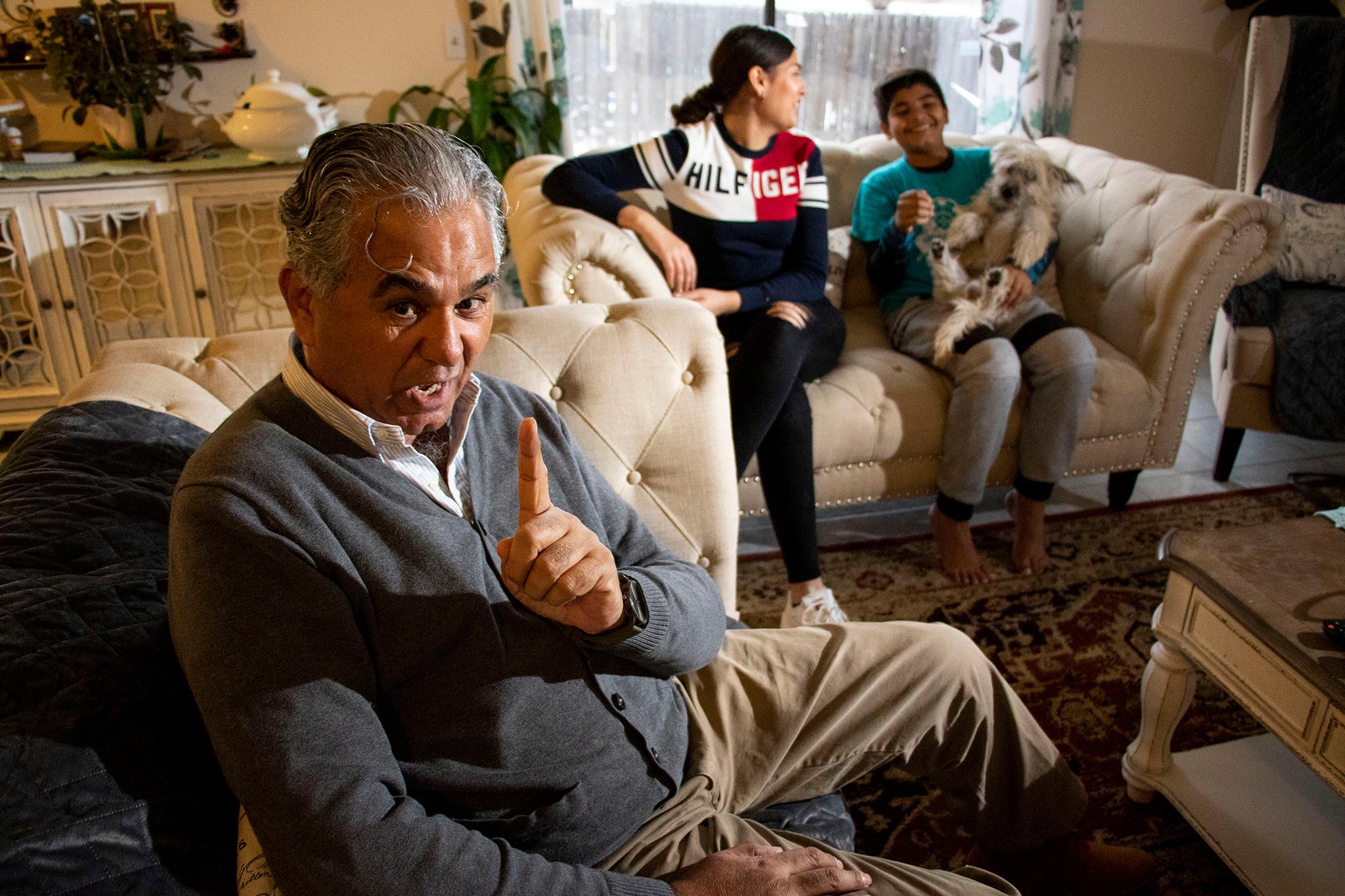
Altaee had his first Thanksgiving with his family at the Fort Collins home of one of the American Marines with whom he had once worked, and who in turn worked to ensure he was granted refuge in the United States. Altaee said they celebrated until late into the night on that fourth Thursday of November in 2014, months after he, his wife Shaimaa and their six children arrived in Denver from Habbaniya in central Iraq.
A heart condition has kept Altaee from steady work since he settled in Denver.
"When I was without work and I had a very big family, I needed rent, power, water. I needed fuel for my car. I needed food," he said.
He was referred to Jewish Family Service, and got support that included help connecting him to medical care.
"Do you know what I call them?" Altaee said of Jewish Family Service case workers and pantry volunteers. "The angels. They look for anyone to help."
"In Iraq, they asked me, 'Muslim or Christian, Sunni or Shiite?'" said Altaee, who is Christian. "In America, no one asks that.
He and his wife, who he said learned to how to roast a turkey from American friends, now invite those friends and others every year to share their Jewish Family Service turkey. He said it is a way to give thanks for his welcome here.
Americans "let my family live among them and I never felt I wasn't an American," Altaee said.
Sheherbi and Kaganov, the Ukrainian-Americans, used to freeze their smoked turkey in portions and enjoy it slowly on their own. They eat Thanksgiving dinner at the home of their daughter, son-in-law and grandchildren.
"They're modern. They know better the American rules," Sheherbi said. "Usually in my house we celebrate Jewish holidays."
"Every time when my family gets together, we pray for America," she said.
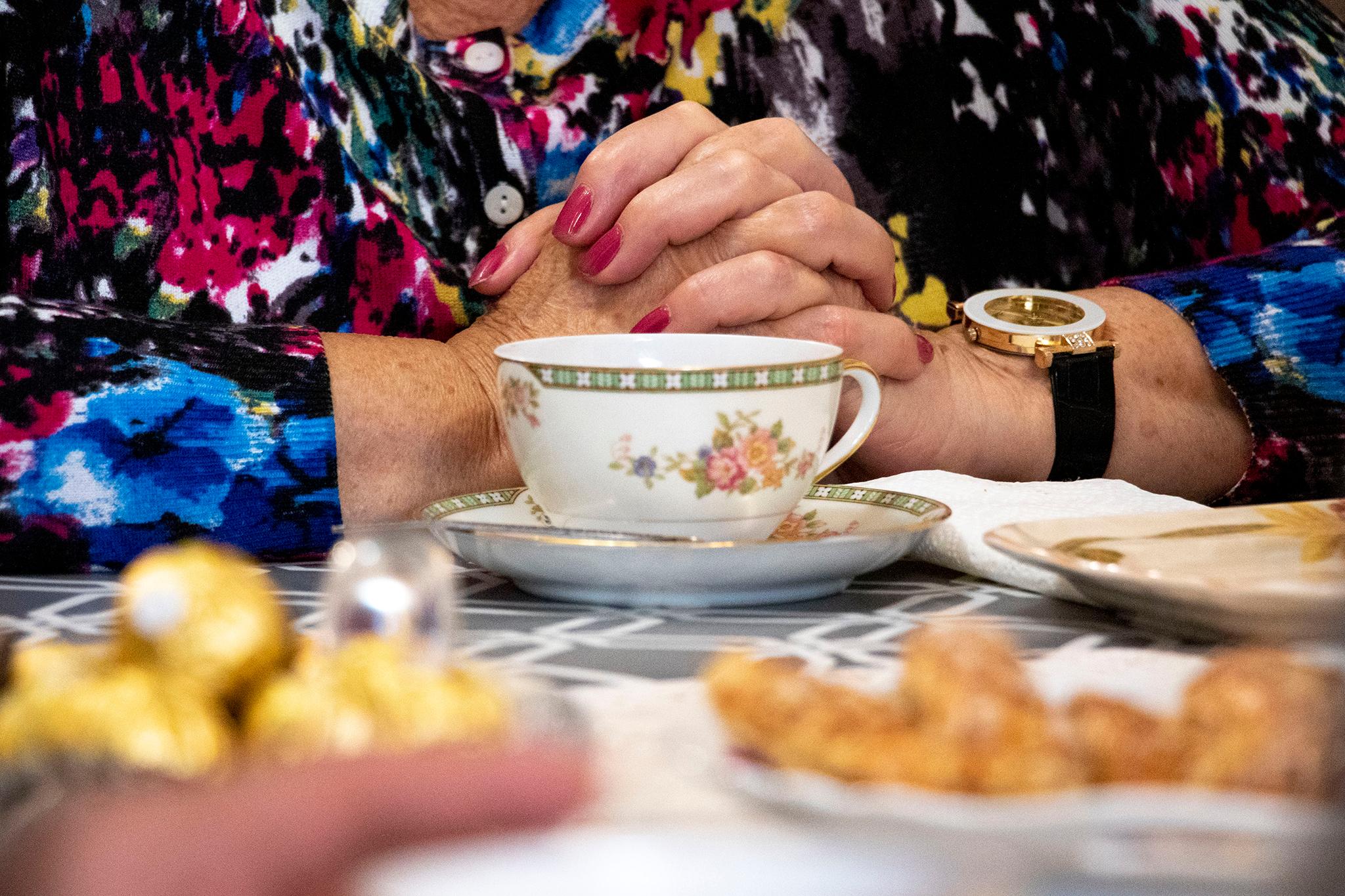
She paused from serving tea to bring out a photo of their granddaughter at her University of Denver law school graduation. She handed it to Kaganov, who proudly showed it to a reporter.
"Because she's Jewish, she would never be a lawyer in Ukraine. Because of the rules," Sheherbi said.
From their first Thanksgiving in Philadelphia until now in Denver, Sheherbi and Kaganov said the holiday has been a moment to reflect on the opportunities the United States has given them.

